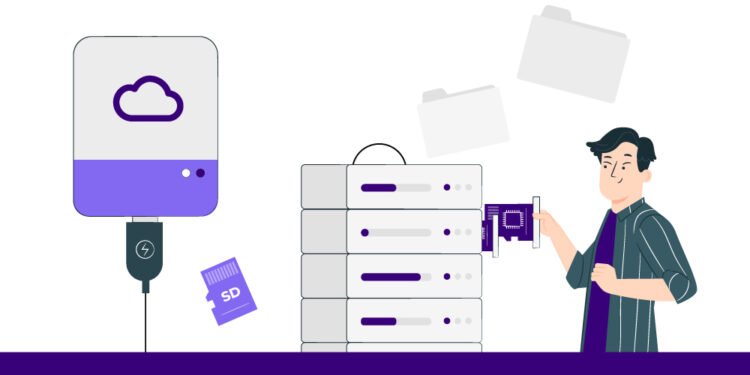As we know, starting a new business comes with its own challenges, and one of the biggest hurdles can be managing communication effectively.
Traditional phone systems are often complicated to set up and are costly. Also, there are high chances of missing out on important calls during peak times. This might be a frustrating factor.
So, what’s the best alternative to a traditional phone system? The answer is cloud telephony, a completely new way for businesses to engage with their customers by utilizing the internet.
In this article, we’ll talk about what cloud telephony actually is, and how it can help to streamline your startup businesses. So, let’s get started.
What is Cloud Telephony?
Cloud telephony is a type of Unified Communication as a Service (UCaaS) that allows organizations to run a business phone system through their internet connection. It eliminates the necessity for traditional enterprise phone systems like Private Branch Exchange (PBX) by offering telephony services accessible via cloud-based platforms (web or applications).
In simple terms, cloud telephony is like renting a virtual phone system in the cloud. You don’t have to buy any hardware accessories; the cloud communication providers provide phone systems and all the essential equipment to let you and your team make and receive calls from anywhere. With this flexibility and scalability, business owners can easily scale up or down their phone systems according to their needs and requirements.
As a startup owner, every second counts, and clear communication plays a vital role in building customer relationships. Here are some ways in which cloud telephony helps streamline your startup business.
Enhanced Customer Experience
As a startup business owner, implementing cloud telephony can help enhance your startup’s customer experience in various ways. It provides seamless communications channels that allow customers to reach your business through various mediums, like
- Voice calls,
- SMS or
- Chat
Moreover, with features like Interactive Voice Response (IVR) and call routing, customers can resolve issues more efficiently by connecting with the right agents. It also helps to reduce wait times, eventually leading to improving overall customer satisfaction.
Analytics And Insights
When it comes to cloud telephony, it’s not just about making calls; it’s also about gaining insights into what your customers are thinking.
For instance, through cloud telephony, businesses have access to detailed reports on call volume, peak calling hours, customer satisfaction score, total calls received and dialed, average call wait time, etc.
Through these detailed call logs and reports, businesses can identify the areas that need improvement. Furthermore, small businesses can make data-driven decisions to optimize business operations by improving service quality.
Flexibility And Customization
Need to add a remote team member overnight? No problem! The flexibility and customization of cloud telephony solutions make it possible to adapt to evolving requirements as they arise seamlessly.
With a cloud-based system, you can seamlessly add new users without the hassle of installing hardware or rewiring your office. Also, you can add or remove new features as per the rapid growth of startups and the changing nature of business needs.

Businesses can easily scale up or down their communication infrastructure, add or remove features, and adjust settings to match their current needs. This agility enables startups to stay agile and responsive in competitive market conditions without being constrained by traditional phone systems.
Global Reach
Utilizing cloud telephony, you can stay connected all around the globe. It breaks down any geographical barriers.
With cloud telephony’s virtual numbers and international calling capabilities, businesses can establish a virtual presence in different countries and regions. It eventually enhances your brand image.
For instance, services like calling Ireland from the USA facilitate seamless communication with international customers by fostering global business growth and opportunities.
Business Continuity And Disaster Recovery
For startup businesses, things are uncertain, and unexpected events can occur anytime. This includes natural disasters or system failure. But don’t worry! With the help of a cloud system, you can run your operation smoothly and efficiently.
As cloud telephony operates through the internet, your communication channels remain operational even if your physical location is impacted. Calls can be automatically rerouted to mobile devices or backup locations, continuing to serve your customers smoothly without any disruptions and downtime.
Additionally, cloud telephony comes with data backup and recovery features, helping you to recover every essential data even if they are lost in a system disaster or system failure.
Integration With Crm And Business Systems
Do you want your call and customer details from other software automatically logging into your phone system? If yes, then it is all possible due to the integrations of cloud phone systems with other business software like CRM.
With the integration between cloud phone and Dynamics CRM software, you can streamline your workflows and improve efficiency as well. It also helps to save your precious time and efforts while providing a more unified view of your customer interactions.
Moreover, this seamless integration helps to eliminate automated tasks like manual data entry and reduces errors. Through this, employees can focus on more strategic tasks and deliver personalized and efficient customer services.
Compliance And Security
With the increase in cyber-attacks, security standards and data compliance regulations are among the most important things to consider for any type of business. Your customers’ information is valuable and confidential; hence, to protect them, you should make the data security system strong enough.

However, for a startup business with a low budget, investing heavily in communication security might be very costly and not feasible at all. Therefore, opting for cloud telephony can help you with complying with security standards and regulations while keeping your budgets as low as possible.
Cloud telephony providers invest heavily to meet compliance standards by implementing security technologies like encryption, authorization, and data center backups. This frees your startup from the burden of dealing with security protocols and all these compliance risks, keeping your customer’s data safe.
Conclusion
To wrap things up, cloud telephony is a very sophisticated, powerful, yet affordable technology to boost the overall business communication of your startup. From enhanced QoS for customer experience to global reach to exceptional capabilities, all with flexibility and customization, cloud telephony is one of the must-have resources for startups seeking a strong foundation for growth and success.
Whether you’re a budding restaurant owner or a high-tech startup, cloud telephony helps you streamline your telecommunication workflow by helping you ditch bulky hardware with flexible interaction and access to advanced features.
FAQS
What Are The Benefits Of Cloud Telephony?
The benefits of cloud telephony are:
- Enhanced customer experience
- Easily scalable
- Global reach
- Integration with the existing business software
- Provides robust security and compliance.
Which Telephony Is Also Known As Internet Telephony?
Internet telephony is commonly referred to as Voice over Internet Protocol (VoIP) telephony. It enables voice communication over the Internet rather than traditional telephone lines.
What Is The Difference Between Voip And Cloud Telephony?
Voice over Internet Protocol (VoIP) and cloud telephony both use the Internet to transmit voice calls. In spite of this, there is a key difference:
- VoIP might require installing hardware on the office premises. Call data is saved in the internal data center. It is pricier than cloud telephony.
- In cloud telephony, there is no need to install physical hardware equipment. All call data are saved on the cloud. It is cheaper than VoIP.














































































































